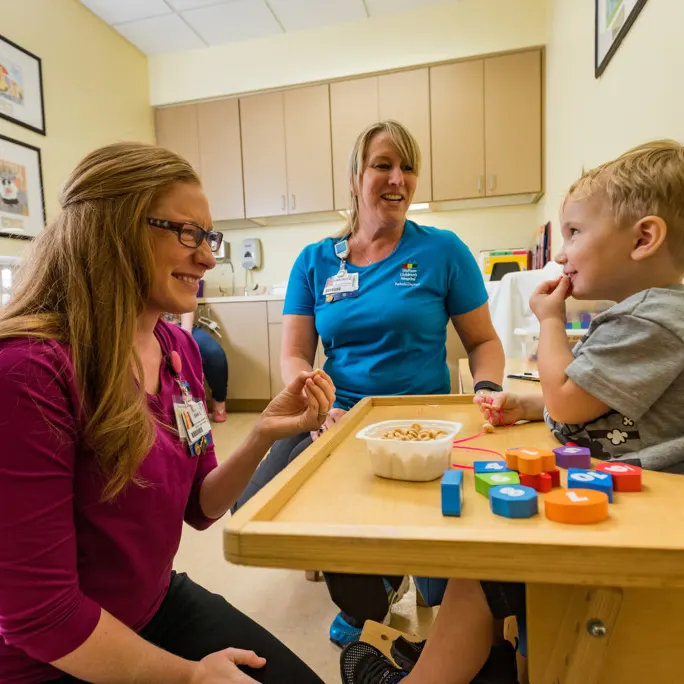Steps to Take When Choosing the Right Speech Pathologist for Your Needs
Steps to Take When Choosing the Right Speech Pathologist for Your Needs
Blog Article
Just How a Speech Pathologist Can Help Improve Interaction Skills
Efficient interaction is a cornerstone of expert and individual success, yet several individuals deal with difficulties that prevent their capability to share themselves clearly. A speech pathologist is outfitted to resolve these barriers via targeted analysis and intervention strategies tailored to each person's needs.
Comprehending Communication Disorders
Understanding communication disorders is vital for recognizing how they affect individuals' ability to reveal themselves and engage with others. Interaction disorders encompass a wide variety of difficulties that affect speech, language, and social communication, frequently hindering efficient communication. These conditions can occur from various factors, including neurological conditions, developing delays, physical impairments, or emotional problems.
Speech problems may materialize as difficulties in fluency, articulation, or voice manufacturing, influencing exactly how words are pronounced or spoken. Language conditions, on the other hand, entail challenges in understanding or making use of language, which can impede both spoken and non-verbal interaction. Social interaction problems are characterized by difficulties in the practical aspects of interaction, such as taking kip down discussion or understanding social hints.
The effects of communication problems are extensive, impacting not only the individual's capability to communicate ideas and feelings however also their social partnerships, educational chances, and general top quality of life. Understanding of these problems can promote compassion and assistance, urging efficient approaches for interaction and interaction. Comprehending the intricacies of interaction conditions is an essential action in the direction of promoting inclusivity and dealing with the needs of those influenced.
Function of a Speech Pathologist
Speech pathologists often play an essential role in detecting and treating communication disorders, using a series of evidence-based techniques customized per individual's demands. These experts collaborate with people throughout the life expectancy, from kids with speech delays to adults recouping from strokes or distressing brain injuries. Their expertise includes a variety of interaction problems, including articulation, fluency, voice, and language conditions.
In therapeutic setups, speech pathologists utilize structured interventions created to enhance interaction abilities. They might implement strategies such as speech workouts, language video games, and social interaction training to help with renovations in receptive and meaningful language capacities. Speech Pathologist. Additionally, they inform customers and their family members regarding effective communication techniques and flexible methods to navigate daily communications
Beyond straight treatment, speech pathologists team up with various other medical care caretakers, specialists, and instructors to make certain a comprehensive approach to therapy. They support for clients by giving resources and assistance, allowing individuals to achieve their interaction objectives and improve their general top quality of life. As specialists in the area, speech pathologists are necessary in fostering reliable communication, promoting independence, and enhancing social involvement for those with communication challenges.
Evaluation and Diagnosis Refine
The analysis and diagnosis procedure conducted by speech pathologists usually involves a comprehensive evaluation to identify communication conditions properly. This procedure starts with a thorough situation background, where the medical professional collects important information about the person's medical, academic, and developmental background. Understanding the context of the individual's communication troubles is essential for an exact medical diagnosis.
Adhering to the instance background, speech pathologists utilize standard tests and casual analyses to evaluate various facets of communication, including speech sound production, language comprehension, meaningful language, and social interaction skills. These evaluations are tailored to the person's age and certain problems, offering valuable information for evaluation.
Observation is additionally an important part of the assessment process, as it enables the clinician to see direct how the individual communicates in all-natural settings. In addition, meetings with member of the family and educators can offer understanding into the individual's interaction difficulties throughout different environments.
Once the evaluation is total, the speech pathologist synthesizes the findings to determine a diagnosis and advise appropriate treatments. This detailed assessment procedure ensures that individuals obtain targeted assistance customized to their unique communication needs, laying anonymous the foundation for effective restorative pop over to this web-site strategies.
Therapeutic Methods and Approaches
Various restorative methods and approaches are employed by speech pathologists to address a variety of interaction problems efficiently. One widely used technique is articulation treatment, which concentrates on remedying speech sounds with rep and aesthetic hints. This strategy is especially valuable for individuals with speech audio disorders.
One more efficient method is language intervention, which enhances both responsive and expressive language skills. This may include interactive tasks that promote vocabulary development, sentence framework understanding, and conversational skills. Additionally, speech pathologists usually make use of social skills educating to boost pragmatic language capabilities, allowing individuals to browse social interactions much more successfully.
Fluency shaping and stuttering adjustment methods are especially developed to help those experiencing fluency conditions. These strategies assist customers establish smoother speech patterns and manage the physical and emotional parts of stuttering.
Moreover, augmentative and alternative interaction (AAC) systems are used for individuals with extreme communication disabilities. These systems, which can include gestures, signs, or electronic gadgets, offer vital support for efficient interaction.
Benefits of Speech Treatment

Furthermore, speech therapy can aid in creating crucial listening and comprehension abilities, promoting far better communication in discussions. People with cognitive-communication disorders can additionally benefit, as treatment concentrates on strengthening memory and analytic capabilities, vital for effective communication.
An additional important facet is the emotional support provided during treatment sessions. Speech pathologists produce a secure environment, encouraging clients to get over anxiety and irritation pertaining to their interaction concerns. This support can bring about improved self-worth and overall mental well-being.
Additionally, early treatment through speech therapy can protect against additional complications, making sure that individuals reach their complete communicative potential. Overall, the benefits of speech therapy extend beyond simple speech enhancement, positively influencing numerous dimensions of life for those influenced by communication troubles.
Final Thought
In summary, speech pathologists play a crucial function in attending to communication conditions via evaluation, diagnosis, and tailored restorative treatments. By utilizing evidence-based techniques, these experts enhance individuals' speech and language abilities, promoting boosted clearness, fluency, and social communication abilities. The advantages of very early treatment emphasize the value of looking for support from speech pathologists, as their proficiency can significantly enhance communicative potential, eventually resulting in greater success in both professional and personal rounds.

Speech pathologists frequently play an essential duty in dealing with and diagnosing interaction problems, employing a range of evidence-based techniques customized to each person's requirements. As specialists in the area, speech pathologists are necessary in cultivating effective communication, promoting self-reliance, and boosting social participation for those with communication challenges.

Report this page